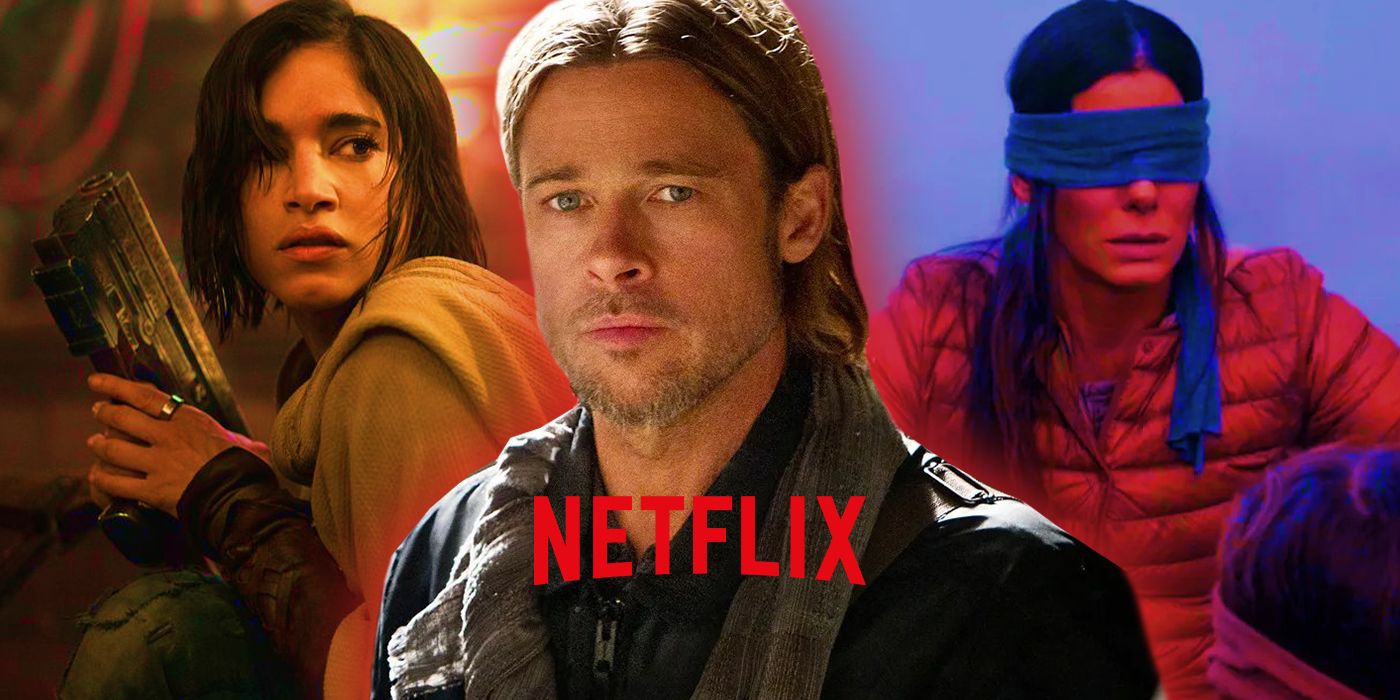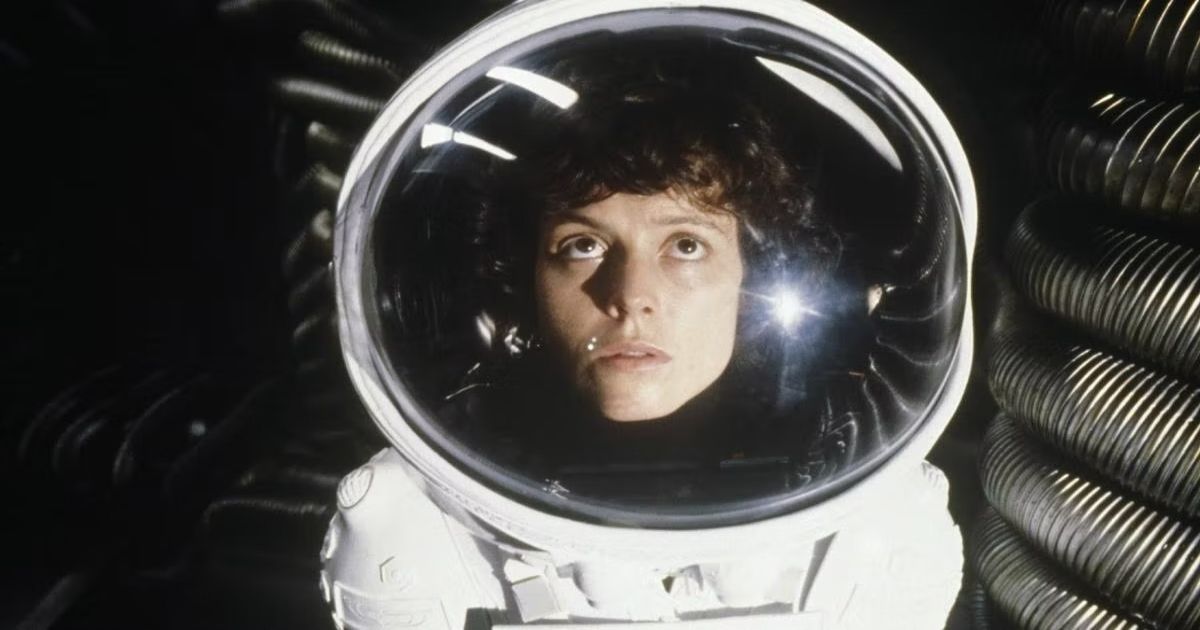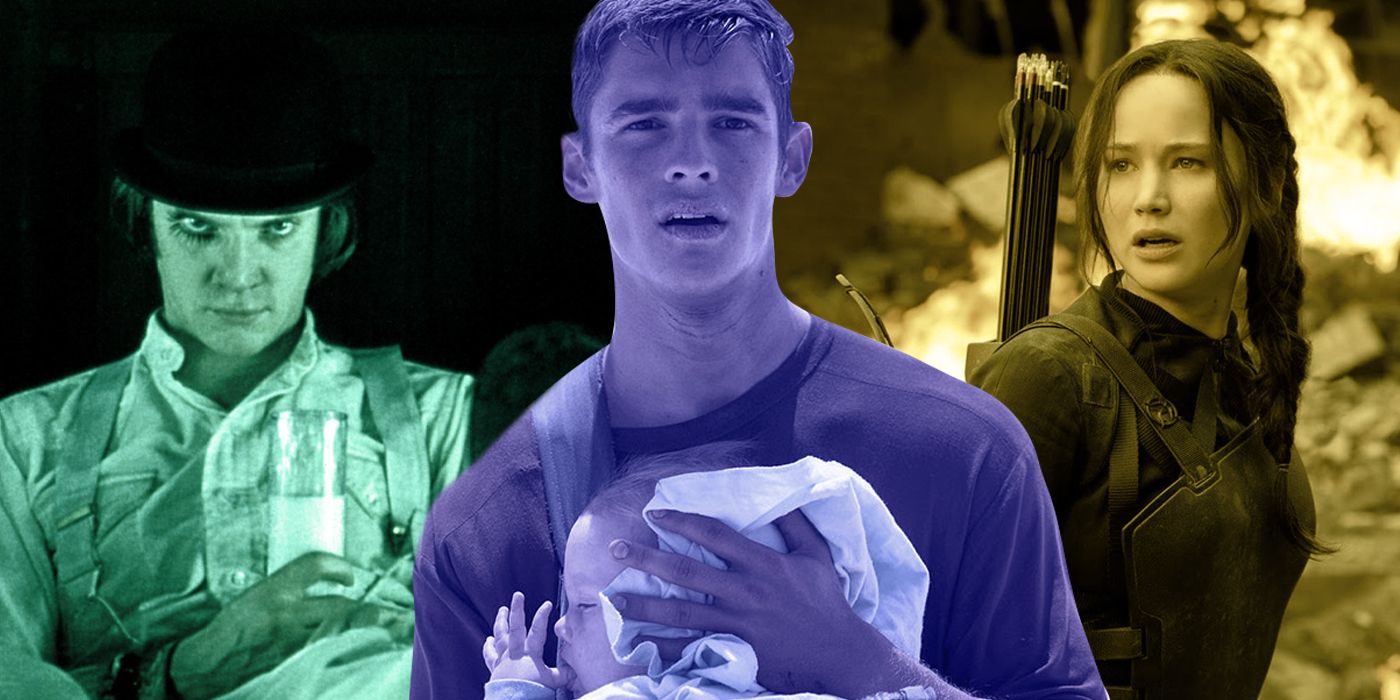Well, Neal Kelly and Jono Sherman’s movie Daddy is certainly not the father … of dystopian satires. The filmmaker’s “sci-fi comedy” sees four very different men attend a government-sanctioned Fatherhood Development Retreat nestled in secluded California mountains. The four participants — Sebastian (Yuriy Sardarov), Andrew (Neal Kelley), Jeremy (Jono Sherman), and Mo (Pomme Koch) — are dropped off on remote federal property and forced to surrender their cell phones as they wait for their assigned monitor to arrive and guide the program. Presumably, in the near future, the Department of Procreation decides who is legally eligible to have children in the United States. Those who fail the “highly competitive” fatherhood program are issued a mandatory vasectomy and are “permanently banned from fathering children” in the country.
Oftentimes (of course, not always), parents are just two people who did the deed, got to boinking, bumped uglies — you get it. With some exceptions, becoming a parent in the United States is not dependent on a person’s character, maturity, or stability. Turn on an episode of MTV’s 16 and Pregnant for further context. In all seriousness, the concept of a fictional America where the federal government intervenes in the matter of who can birth children is a thought-provoking one (and is explored in another film this month, The Assessment).
Unfortunately, Daddy‘s promising premise falls flat, failing to explore themes like modern fatherhood and masculinity with enough nuance and depth to make it a powerful American satire. Viewers want to understand why “fatherhood is the future,” but with so many questions and so few answers, Daddy feels like a loose idea rather than a concrete spoof on what might be an approaching sociopolitical issue.
What Makes a Person “Worthy” of Fatherhood? ‘Daddy’ Isn’t Sure
- Release Date
-
March 25, 2025
- Runtime
-
98 Minutes
- Director
-
Jono Sherman, Neal Kelley
- Writers
-
Jono Sherman, Neal Kelley
- Producers
-
Sophia Kalin
- Every actor puts on a marvelous performance, committing to their character with a clear sense of empathy.
- For a movie labeled a “sci-fi comedy,” it’s lacking in both departments.
- ‘Daddy’ had a lot of potential to explore authority, masculinity, and fatherhood, but sadly misses the mark.
The paranoid thriller aspect of Daddy becomes apparent when the unsuspecting men realize a monitor is not coming, and they are now stranded in the mountains with limited resources. Despite having 2,000 acres of land to roam, the quad’s experience begins to feel claustrophobic, as the men jump down each other’s throats. One second, a participant accuses another of secretly being the monitor, and the next they’re all fighting over the purpose of the house’s ominous weighted baby doll, who they name Jams (an acronym for their forenames).
Allegations of sabotage, the looming inkling that one participant is a plant, increased feelings of uneasiness and fear — these are all symptoms of a familiar plot structure that follows a group of strangers trapped in a confined environment for the foreseeable future. From René Clair’s 1945 mystery And Then There Were None (based on Agatha Christie’s 1939 novel) to more modern horror-thrillers like those of the Saw franchise and The Invitation, this brand of suspicion, anxiety, and persecution complex is always intriguing. Typically, the audience is as clueless as the protagonists, which makes for an arresting viewing experience.
In Daddy, Jeremy, Andrew, Sebastian, and Mo soon come to the conclusion that they’re being watched and tested in the race to legal fatherhood. With zero instructions and seemingly no monitor, the hopeful participants struggle to prove that they’re worthy, eventually resorting to manipulation and violence. And while the stakes are certainly high, the suspense feels more or less disingenuous. The setting and atmosphere are calm and steady throughout, peaceful even. A picturesque mountain landscape and a quaint house don’t scream disquietude. Plus, these men don’t seem very interested in being fathers. Why are they fighting over a stained tablecloth on Day 2?
Playing Papa
As viewers learn more about the participants, their individual reasons for being there unveil themselves. From daddy issues to frantic legacy building, their personal quests for legal fatherhood are essentially character development bullet points. Only Andrew is convincingly eager to be a dad; after the passing of his unborn child, the law changed, and now he’s forced to prove himself a worthy father. Aside from the mildly biblical Andrew, perhaps the group’s lack of drive is the point; people generally become parents for questionable reasons, sometimes for no reason at all. Still, it’s hard to pinpoint if any of them would make good fathers, and Daddy isn’t sure what that looks like. At the very least, it doesn’t probe it with vigor.

Related
10 Best Dystopian Movies You Should See on Netflix
Whether you are a fan of futuristic science fiction or prefer the gritty realism of a world on the edge, these dystopian movies will entertain you.
Viewers watch as the men engage in makeshift fatherhood exercises, physically protecting Jams (which is essentially the film’s version of Cast Away‘s Wilson) in a theatrical scuffle and attempting fatherly discipline role-play. They put on an act for hidden cameras that may or may not exist, and to Daddy‘s defense, that may be what parenthood is all about. Is it so wrong to say parenting is at times a performative ruse to get the child and society to see one as an all-knowing authority figure? Sure, an all-knowing authority figure with baby spit-up on their dingy gray hoodie, but an all-knowing authority figure nonetheless.
Surprisingly, ‘Daddy’ Is Not a “Men are Trash” Movie
In the last decade or so, films layered with feminist themes like Midsommar, Gone Girl, Promising Young Woman, Men, and Watcher really hit home that men suck. For better or worse, they offer strong stances. Unexpectedly, Daddy refuses to position itself as a representation of this category — and not just because its writer-directors are men. Instead, Daddy strives to highlight and dissect the imperfect nature of man, the innate insecurities of hopeful fathers. Not only that, but the film’s dystopian world also requires women to attend motherhood programs.

Related
The Best Feminist Horror Movies of All Time
Horror movies both represent society’s deepest fears and prominently feature women, thus giving voice to their experiences and these films do it best.
The second act arrival of Jacqueline Toboni’s panic-stricken Ally (shout out to all The L Word: Generation Q Finley truthers) further penetrates the idea that the perfect parent is a social construct. Men and women — being that the film only examines a binary — are naturally imperfect. Needless to say, Daddy is mainly an examination of fatherhood and masculinity, a watered-down one at that. Sebastian represents a stereotypical alpha male, even sarcastically uttering the words, “Because I’m a natural-born leader? [Is] that such a crime?!” Another line from Sebastian stands out:
“This is exactly what we needed: radical vulnerability. Stripping ourselves bare for one another; that’s what being a man is nowadays, huh? That’s what’s expected.”
He’s clearly frustrated with society’s progressive shaping of masculinity, and Daddy could use an expansion of this idea. Jeremy represents the other end of the spectrum, a stereotypical sensitive beta male who feels sad when he takes three ice cubes from a four-cube tray, leaving the last cube by its lonesome. At the same time, beta male Jeremy is confident enough to admit he’s insecure about being single, while alpha male Sebastian’s sensitivity about being single comes through when he attacks Andrew and Mo for being considerate of their romantic partners. “Andrew and Mo are weak. They’ve let their women dictate who they are and what they’re able to do, how they act,” Sebastian tells Jeremy.

Related
10 Dystopian Movies We Need to Rewatch and the Messages We Need to Learn
Dystopian movies often have a lesson to be learned, but many may have missed that message the first time around while we were enjoying the story.
Sebastian’s fascination with the Battle of Waterloo is also worth noting, as it makes him think about the power of sacrifice. “About going to the ends of the world and fighting for what you believe in, no matter the cost,” Sebastian says. “That’s what I think about when I think about starting a family.”
‘Daddy’ Doesn’t Divulge
Themes of both toxic and fragile masculinity are present, as are questions about the meaning of fatherhood. Is it about sacrifice and war? Is it about filling a void, a hole in one’s heart? Is it about making a difference in the world? Who’s to say? In a dragged-out satire like Daddy, however, the potency of these themes should be stronger. In the end, Daddy throws out a slew of questions about fatherhood, manhood, sanity in the face of uncertainty, and a controlling federal government. Good acting and a creepy baby doll can’t mask the fact that Daddy refuses to take a stance with confidence, even if it’s a contentious one.
Curious? Catch Daddy during its limited theatrical run in Brooklyn, N.Y., at the Stuart Cinema and Café until March 30, 2025. It’ll have its limited theatrical release in California come April 2025. Daddy will play at Long Beach’s The Art Theater on April 2, at Los Angeles’ Laemmle NoHo 7 on April 8, and at Santa Ana’s Frida Cinema on April 9. Daddy will be available on VOD on Tuesday, April 15, 2025.
This story originally appeared on Movieweb


